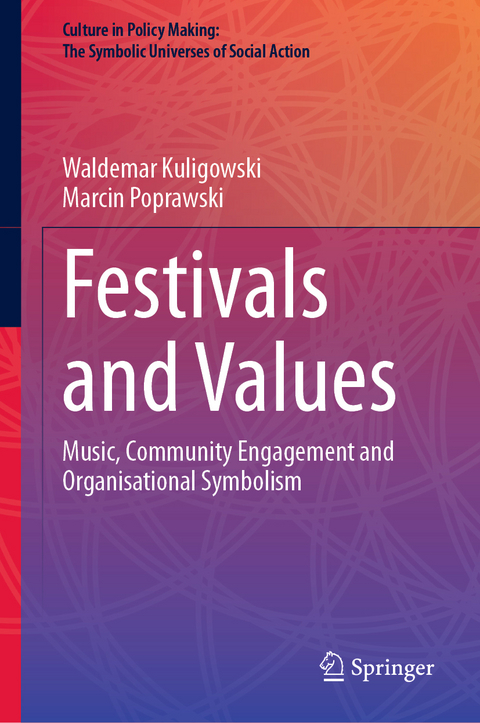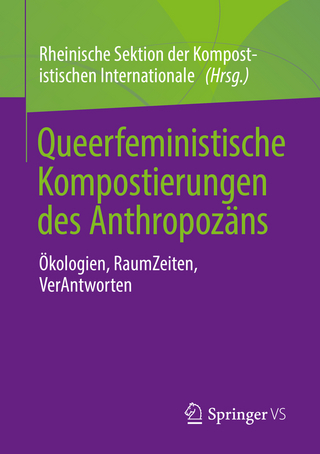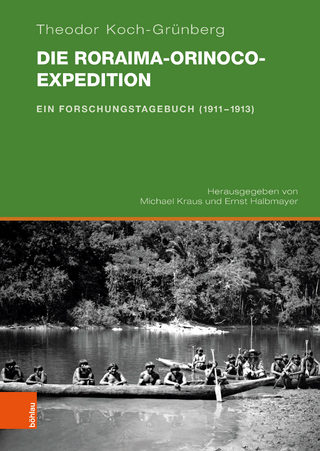
Festivals and Values
Springer International Publishing (Verlag)
978-3-031-39751-6 (ISBN)
This is an original book, covering all the past areas of research anyone would need to know about festivals and 'event-based culture'. It is based on academic research but written in a way relevant for cultural professionals - uniquely explaining the cultural power of festivals, and with original empirical research, the realities of organisation and management, and social and economic value.
Dr Jonathan Vickery, Reader in Cultural Policy Studies and Director: Centre for Cultural and Media Policy Studies, Univeristy of Warwick.
This book discusses music festivals in the context of the specific values they convey. Today, music festivals are a permanent feature of national, regional and local cultural policies, a valuable asset in the tourism industry and a significant source of income for an industry that has been adversely affected by the steady decline in physical sales of music. For the audience, on the other hand, it is an opportunity to escape from everyday life, multi-sensory contact with art, an activity that stands for "full-body participation"- a cultural phenomenon that drags people out of their homes like no other. There is one common denominator linking the above-mentioned features of contemporary music festivals - namely the world of values. This is evident from the non-accidental locations, festivals spaces' design, planning and the line-ups created consciously, with great care. The organisers' "missions", logos, and other symbolic organisational artefacts communicate specific values. These values are explicitly mentioned by artists and audiences: they can be easily identified in online forums and media reports; participant behaviour, festival "rituals" and additional festival programs are shaped on the basis of values, and cooperation is built between the festival and the local community.
As the reader will quickly realize, numbers and statistics sit alongside descriptions and quotations in this book, and the organisers' statements are accompanied by the opinions of academics, but above all the festival audience is given a voice - both through quotations and their drawings. This voice is by no means uniform, as it turned out that research into values was often transformed into a pretext for spinning tales about one's life situation, one's political preferences, and one's understanding of freedom and responsibility. Memories were mixed with declarations, joy with regret, curses with dreams, prose with poetry. Thomas Pettitt was not wrong in noting that "Social history has learnt to appreciate festival as a valuable window on society and its structures". The authors have tried to open all the windows available.
Students and researchers in the fields of cultural anthropology, social psychology, folklore studies, comparative religion, sociology of culture, cultural policy, cultural history, and cultural management will find this book highly interesting.
lt;b>Prof. Waldemar Kuligowski is a head of Section of Cultural Anthropology at the Department of Anthropology and Ethnology at Adam Mickiewicz University in Poznan, Poland. His research interests focus on the theory of culture, reflexive ethnography, modernization, globalization and festivalization. He was conducting fieldworks in Poland, Hungary, Germany, Uzbekistan, Spain, Serbia, Albania, and Canada. He published a dozen of books, also as co-editor, such as: Art in Contemporary Cultural Systems: Central and Eastern Europe; Sterile and Isolated? An Anthropology Today in Hungary and Poland; and Cultures of Motorway. Localities through Mobility as an Anthropological Issue. He's also an author of many articles published in international journals such as Anthropology Today, East European Politics and Societies, Jahrbuch für Europäische Ethnologie, Transfers: Interdisciplinary Journal of Mobility Studies, Anthropos. International Review of Anthropology and Linguistics. His recent research engagement is with the project: Festivalization of Values: Axio-normativity of Music Festivals (Adam Mickiewicz University / National Science Centre PL).
Dr. Marcin Poprawski is a researcher and lecturer at HUMAK University of Applied Sciences (Finland) and the AMU University of Poznan (Poland), Institute of Cultural Studies, Faculty of Anthropology and Cultural Studies. The foci of his research, publications and teaching are cultural management, cultural policies, audience engagement, sustainable local cultural ecosystems, festivals, and organizational cultures. He is a director of the AMU ROK Culture Observatory research centre in Poznan. He has been involved in, among others, a study of audience engagement for the European Commission (Fondazione Fitzcarraldo - Turin) and the E+ Knowledge Alliance project 'Connecting Audiences' (University of Deusto in Bilbao) or European Research Partnership on Cultural and Creative Spillovers (ECBN Rotterdam). His recent research engagement is with the project: Festivalization of Values: Axio-normativity of Music Festivals (Adam Mickiewicz University / National Science Centre PL). He is member of the editorial board of the Journal of Cultural Management and Cultural Policy (Fachverban Kulturmanagement). In 2021 he was elected the member of the scientific committee of the International Conferences on Cultural Policy Research (ICCPR). He was twice elected vice-president of the European Network on Cultural Management and Policy (ENCATC) in Brussels (2013 -2018). Since November 2020 he is one of the 15 members of the European Expert Network on Culture that serves as the expert advisory to the European Commission.
Introduction.- Festivals, between ritual sacrum and consumption profane. Definitions of festivals - from Durkheim and Mauss to event studies.- Researching Values and Festivals - critical analysis of techniques and research tools. Defining values relevance at festivals - Festivals as contact zones - case studies - festivalization of integration and difference.- From commercialized legend to community-based festival. The case study of Jarocin Festival.- Music festivals and local cultural ecosystems.- Cultural policy implications of the festivalization of values.- Music festivals and sustainability-oriented values.- Audience development practice and festivals' mission statements.- Organizational symbolism of music festivals. Organizational formats for social integration and community engagement.- Festivals without festivals - Pandemic Time case studies.- The resilience of festivals and the loyalty of their audiences during pandemic/lockdowns.- Finale. Festivals and Values.
| Erscheinungsdatum | 28.11.2023 |
|---|---|
| Reihe/Serie | Culture in Policy Making: The Symbolic Universes of Social Action |
| Zusatzinfo | IX, 213 p. 41 illus., 40 illus. in color. |
| Verlagsort | Cham |
| Sprache | englisch |
| Maße | 155 x 235 mm |
| Gewicht | 493 g |
| Themenwelt | Sozialwissenschaften ► Ethnologie |
| Sozialwissenschaften ► Soziologie | |
| Schlagworte | Audience Development and Festivals • Cultural Identity • Cultural values • Festivals • Festivals and Community Integration • Festivals and Difference • Festivals and Diversity • Festivals and Pandemic • Festivals and Social Integration • Festivals and Sustainability Values • Festivals Research Methods • Festivals' Resilience • Festivals’ Resilience • Music and Values • music festivals |
| ISBN-10 | 3-031-39751-7 / 3031397517 |
| ISBN-13 | 978-3-031-39751-6 / 9783031397516 |
| Zustand | Neuware |
| Haben Sie eine Frage zum Produkt? |
aus dem Bereich


